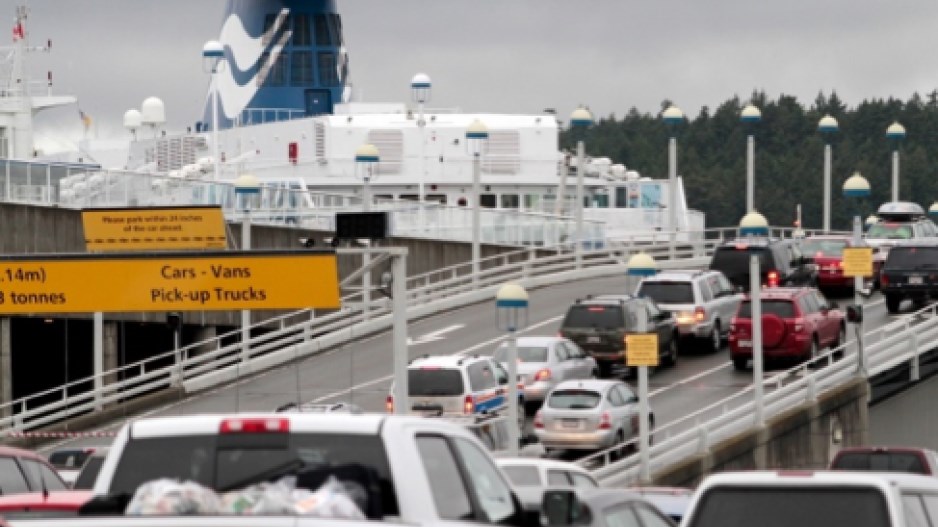Vancouver-based Seaspan Shipyards was shortlisted with companies from Norway, Germany, Poland and Turkey to bid on building the three new ships for BC Ferries.
The ships are to be dual-powered by diesel and liquefied natural gas, BC Ferries said in a news release.
The ferry corporation has promoted LNG as a much cheaper source of fuel for vessels. BC Ferries said last year it spent $121 million in fuel.
The three ships are intermediate class, which means they can hold between 125-145 vehicles and up to 600 passengers. They will run on the routes of Comox-Powell River, Tsawwasssen-Southern Gulf Islands and the Southern Gulf Islands, BC Ferries said.
A contract with the winning bidder is expected to be signed by spring 2014, with the first vessels in service in 2016.
George MacPherson, president of the Shipyard General Workers’ Federation, said, “BC Ferries should be ashamed of themselves.”
He is not surprised that there is just one Canadian yard shortlisted for the work.
“I think they are poised to go offshore. I think that is where it is going to end up. I think that’s a real disappointment to British Columbians and to the shipbuilding industry itself.”
He met with Transportation Minister Todd Stone in mid-November to ask for a meeting with BC Ferries Services and the minister. “To date, we have not heard back from Todd Stone or the Ferry Corp.”
British Columbia has enough trained shipyard workers and it has the capability to build the ferries, MacPherson said.
Although Seaspan responded to a request for pre-qualification for the ferries work, MacPherson said he thinks it is unlikely that the North Vancouver-based yard will end up bidding on the work. That’s because it is already lining up contracts worth $11.3 billion to build non-combat federal ships starting next year and running for a possible two decades.
“The problem is the time frame for building them, given the federal time frame.
“They may surprise me and put it in. If they do that’s great. But I don’t believe they will.”
As far as MacPherson knows, Seaspan is the only B.C. company that sought to be pre-qualified for the work.
Ferries has a “very tight” build schedule, MacPherson said.
Other countries have traditionally heavily subsidized their shipbuilding industries to keep them operating. MacPherson said he does not think that is a major issue. “I think we are competitive with the countries that will be bidding on this thing.”
He thinks the edge among foreign yards interested in this work goes to Flensburger Schiffbau-Gesellschaft mbH and Co. KG, Germany. That company built three Super-C Class ferries that joined the B.C. fleet in 2008.
If B.C. won the job, it would create approximately 450 jobs and of those, 15% would be apprentices, he said. Also, the $350 million spinoff effect would stay in this country.
From the very start of BC Ferries, back to the days of Premier W.A.C. Bennett, up until 2011 the organization would sit down with all of industry and lay out their building plan, he said. “Industry would respond on how they were going to do it. There was never any question about they were going to build it.”
“For somebody to tell me that the province is saving money by sending half a billion dollars out of the province, I say, ‘Ridiculous.’
“You lose all your spinoff value. There’s no taxes being paid in the country.”
The province decided in 1994 to build three FastCat ferries in B.C. Service problems led to them being sold off.




